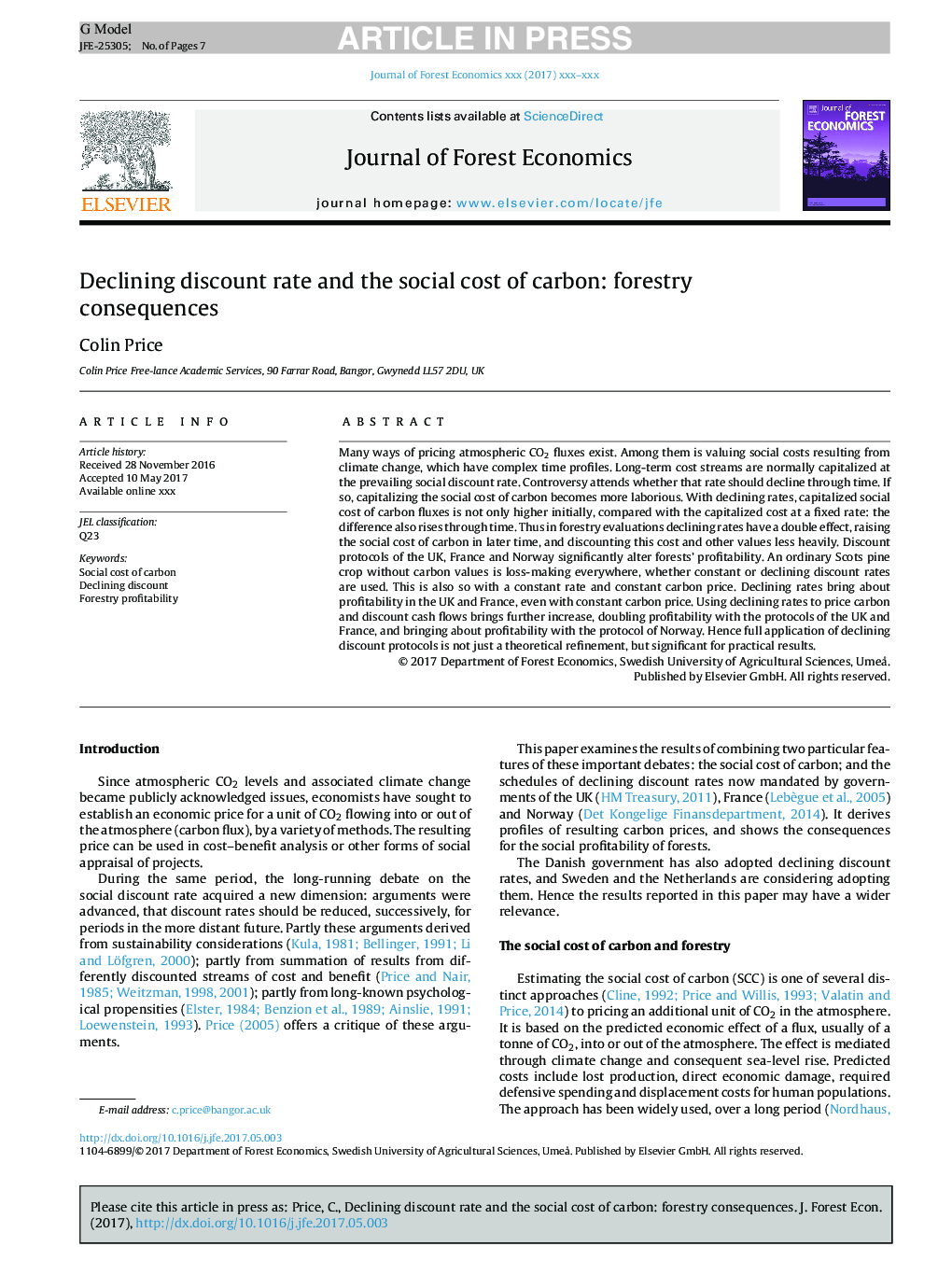| کد مقاله | کد نشریه | سال انتشار | مقاله انگلیسی | نسخه تمام متن |
|---|---|---|---|---|
| 6545125 | 1421734 | 2018 | 7 صفحه PDF | دانلود رایگان |
عنوان انگلیسی مقاله ISI
Declining discount rate and the social cost of carbon: Forestry consequences
ترجمه فارسی عنوان
کاهش نرخ بهره و هزینه اجتماعی کربن: عواقب جنگلداری
دانلود مقاله + سفارش ترجمه
دانلود مقاله ISI انگلیسی
رایگان برای ایرانیان
کلمات کلیدی
موضوعات مرتبط
علوم زیستی و بیوفناوری
علوم کشاورزی و بیولوژیک
علوم زراعت و اصلاح نباتات
چکیده انگلیسی
Many ways of pricing atmospheric CO2 fluxes exist. Among them is valuing social costs resulting from climate change, which have complex time profiles. Long-term cost streams are normally capitalized at the prevailing social discount rate. Controversy attends whether that rate should decline through time. If so, capitalizing the social cost of carbon becomes more laborious. With declining rates, capitalized social cost of carbon fluxes is not only higher initially, compared with the capitalized cost at a fixed rate: the difference also rises through time. Thus in forestry evaluations declining rates have a double effect, raising the social cost of carbon in later time, and discounting this cost and other values less heavily. Discount protocols of the UK, France and Norway significantly alter forests' profitability. An ordinary Scots pine crop without carbon values is loss-making everywhere, whether constant or declining discount rates are used. This is also so with a constant rate and constant carbon price. Declining rates bring about profitability in the UK and France, even with constant carbon price. Using declining rates to price carbon and discount cash flows brings further increase, doubling profitability with the protocols of the UK and France, and bringing about profitability with the protocol of Norway. Hence full application of declining discount protocols is not just a theoretical refinement, but significant for practical results.
ناشر
Database: Elsevier - ScienceDirect (ساینس دایرکت)
Journal: Journal of Forest Economics - Volume 31, April 2018, Pages 39-45
Journal: Journal of Forest Economics - Volume 31, April 2018, Pages 39-45
نویسندگان
Colin Price,
